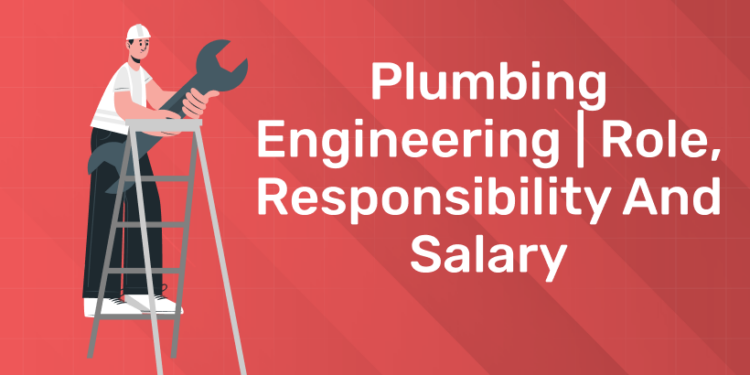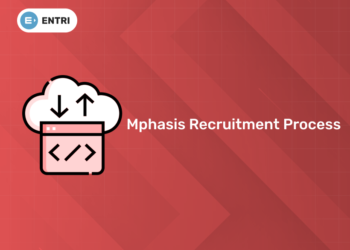Table of Contents
Plumbing engineers design, install and maintain water and plumbing systems in commercial and residential buildings. They use specialized knowledge and skills to do things efficiently. Learning more about this role and its requirements will help you decide if you are interested in pursuing this role. In this article, we explain what this type of engineer is, discuss the requirements for becoming an engineer, and answer frequently asked questions.
Plumbing engineers usually work for engineering or architectural consulting firms. Your primary responsibility will be to oversee the design and implementation of plumbing engineering systems, from waste disposal systems to water systems. In this role, you will typically be responsible for managing and staying within project budget. You can work on a variety of building projects, including medical facilities, commercial businesses, and government agencies.
Get Career oriented MEP training with Expert Mentors! Get Free Demo Here!
What is a Plumbing Engineer?
Plumbing engineers work for engineering, construction or plumbing companies that build new homes or commercial properties. They design, install and maintain water systems for these buildings and ensure access to water supply and drainage. These engineers may specialize in specific areas of plumbing, such as installing bathroom plumbing or maintaining sewer and storm lines.
What does Plumbing Engineer Do?
Plumbing engineers are responsible for the design, installation and maintenance of plumbing systems. You will be working with a variety of materials such as metals, plastics and concrete, so you should be familiar with local building codes and regulations. Plumbing engineers often work with other engineers and architects to plan the design of new construction projects.
- Supervising the design and installation of piping systems such as water supply, drainage, gas supply, etc.
- Inspect piping systems to identify and correct defects
- Investigating customer complaints regarding plumbing problems
- Coordinating the work of plumbers and other workers during the construction or repair of piping systems
- Specify the type and size of pipes, fittings and other equipment required for the job
- Estimate material and labor costs for your project
- Create drawings or plans that show where plumbing fixtures, pipes, and other equipment will be installed
- Consult with architects, engineers, and other professionals to plan or design new or modified plumbing systems.
- Tests to ensure that the plumbing system is working properly
Responsibilities and Duties of Plumbing Engineer
In your role as a plumbing engineer, you will be responsible for all aspects of the design process, including building analysis, performing design calculations, and selecting appropriate plumbing systems and equipment for installation. We then prepare all relevant marketing materials and schematics to present the proposal to the client. Other duties may include preparing technical documents such as project drawings and design reviews, supervising personnel assigned to projects, and providing training and guidance to junior engineering staff. As a plumbing engineer, you may also be responsible for conducting quality assurance reviews on projects, evaluating all technician drawings, and providing assistance with customer requests for information (RFI).
- Creating detailed layout plans for all drainage and water supply systems for all residential and government buildings.
- Conduct regular inspections of all equipment and materials and assist in their fabrication as necessary.
- Managing and conducting testing of various materials and equipment, maintaining knowledge of all product specifications and ensuring compliance with all required standards.
- We work with various teams to design all architectural and electrical requirements for all plumbing projects.
- We assist in assigning appropriate CAD designs for all activities and ensuring compliance with all client time frames.
- Evaluate all engineering drawings against required quality regulations.
- Monitoring and testing all types of water and sewage pipe installations in all residential and commercial buildings.
- We will install different commission pumps.
- Management of all plumbing work and certification of all contractor invoices.
- Check all materials and plumbing work regularly.
- We work with all consultants and contractors for all plumbing work.
Master MEP Design with Industry-Leading Training!
Gain in-depth knowledge of Mechanical, Electrical, and Plumbing (MEP) Design with expert-led courses. Learn HVAC, fire safety, sustainable building strategies, and BIM applications to excel in the construction industry.
Know MoreRequirements to Become a Plumbing Engineer
Here are some conditions that an employer may have for this role:
Education
Candidates seeking this position usually have a bachelor’s degree in mechanical engineering. It teaches students about the principles of physics and mathematics that can be used in the construction and maintenance of plumbing systems. Some mechanical engineering programs include internships and internships that allow students to gain industry experience in a controlled environment. A bachelor’s degree usually takes three to four years. Some employers may prefer candidates with a master’s degree, but it takes a year or two more to get a master’s degree. Earning a master’s degree will provide you with more specialized knowledge in the field of plumbing and prepare you for management positions.
Training and work experience
Plumbing engineering can be a hands-on profession where practical experience is as important as theoretical knowledge. Some universities recommend 3-6 months of internship before graduation. You can also gain experience by taking an apprenticeship to learn from experienced plumbing engineers. Or, you can apply for entry-level positions such as HVAC technician or plumber and get hands-on training as you plan your career advancement. Hands-on experience will help you test your plumbing skills and learn how to apply them in real-world scenarios. You can also stay up to date with industry trends and build your professional network.
Educational support assistants provided by Entri experts help you enhance your MEP learning experience. The MEP course curriculum is designed by experts in this field. Learn the nuances of MEP course from basics. To gain practical experience, we introduce real practical experiences.
Licensure
After gaining industry experience and earning a bachelor’s degree, you can become a certified engineer. For this, you can participate in the national professional exam. This exam tests your knowledge of engineering laws, standards and ethics. You have 2.5 hours to complete 110 multiple choice questions. If you pass, you will be eligible to register with your state or territory regulatory body and become a certified professional engineer.
Skills to Become a Plumbing Engineer
Employers set their own requirements for the skills they look for in engineers, but here are some common requirements to consider:
Plumbing jobs can require a variety of hard and soft skills. In some cases, the employer may specify the skills required for the position in the job description. Below are some examples of important plumbing engineering skills.
Computer literacy
Plumbing engineers commonly use software programs such as plant design management systems (PDMS) in their daily work. You can also use spreadsheet tools and word processors to perform administrative tasks such as invoicing and customer management. These tasks usually require computer literacy.
Technical skills
Plumbing engineers may need technical skills such as creating and interpreting drawings, operating plumbing tools, and installing and maintaining plumbing systems. These competencies include computer-aided design (CAD), drafting, project management, and data analysis skills. These can be acquired through formal training or work experience.
Physical skills
Plumbing is usually a physically demanding job, so it is essential that professionals in this field are physically fit. Below are some examples of physical skills that will help you become a better plumbing engineer.
- flexibility
- physical strength
- dexterity
- good vision
- fine motor skills
- balance and coordination
- agility
Critical thinking and problem-solving
In this profession, you often evaluate plumbing systems to identify and correct defects. This task may require you to think creatively and logically in a short period of time. Problem solving skills can also help you anticipate and avoid these challenges.
Administrative skills
Plumbing engineers can become senior-level employees responsible for administrative tasks such as ordering supplies, creating project calendars, tracking costs, and delegating tasks. These responsibilities may require leadership and management skills such as organizing, prioritizing, delegating, and multitasking. You can learn management skills through short courses and improve them on the job.
Effective communication
Although the work of plumbing engineers primarily involves working with pipes and computers, these professionals may also interact with managers, project owners, colleagues, material suppliers, and assistants. Communication skills allow you to explain complex plumbing ideas in understandable terms and formats. These skills include active listening, written communication, empathy, emotional control and stress management.
Attention to detail
Small details like pipe length and materials can make a big difference in plumbing. For example, copper pipes are durable, but may not be as ideal as polyvinyl chloride (PVC) pipes for commercial projects that are subject to erosion. PVC pipes are thicker and more durable than copper and produce less noise when pumping water at high speeds. Detail-oriented skills will help you identify these details and create a functional and long-lasting plumbing system.
Get Career oriented MEP training with Expert Mentors! Get Free Demo Here!
Plumbing Engineer Salaries in India
The average salary of a plumbing engineer in India is Rs 33,326 per month. The average additional cash compensation for a plumbing engineer in India is Rs 2,326 and ranges from Rs 1,250 to Rs 258,488.
The average salary for a plumbing engineer in the United States is $73,343 per year. However, the salary range is usually between $63,643 and $83,550. Salary ranges vary greatly depending on many important factors, including education, certifications, additional skills, and years in the profession.
Master MEP Design with Industry-Leading Training!
Gain in-depth knowledge of Mechanical, Electrical, and Plumbing (MEP) Design with expert-led courses. Learn HVAC, fire safety, sustainable building strategies, and BIM applications to excel in the construction industry.
Know MoreTips for Becoming a Plumbing Engineer
Plumbing engineer jobs often attract multiple candidates. Below are some tips you can use to jump-start your career and increase your employability.
Build your professional network
Networking with other plumbing engineers can help you find job and internship opportunities. Build your professional network by attending industry seminars and joining plumbing associations such as the Chartered Institute of Plumbing and Heating Engineering. Another option is to use social media platforms to connect with experts in your area.
Keep yourself up-to-date with industry trends
Plumbing can be a dynamic job because tools and technology often come into play. It may be important to keep track of these changes while looking for work. This can be done through certification programs, industry seminars, and personal mentoring with colleagues. You can also follow plumbing websites, blogs, and journals to stay up to date.
Maintain physical health
This job may involve physical tasks such as installing piping systems, working with hand tools, and lifting pipes. For this reason, maintaining physical health can be important. You can stay healthy by exercising regularly, maintaining a balanced diet, getting enough rest, and stretching before exercise.
Put safety first
Plumbing engineers work in environments that are subject to falls, cold, heat and wear. Please wear protective equipment and follow safety rules and precautions to stay safe. Recruiters often prefer candidates who understand the importance of workplace safety.
|
Engineering Upskilling Courses
|
| MEP Course |
Pros and Cons of Being a Plumbing Engineer
Pros of Being a Plumbing Engineer
Job Security
One of the main benefits of becoming a plumbing engineer is job security. Due to the regular demand of people for plumbing installation and maintenance, the demand for plumbing engineers is very stable. In addition, the need for these professionals increases during the construction of new buildings, housing and infrastructure projects.
- Steady demand for skilled labor
- Increasing demand due to infrastructure development
- A business that survives the recession
High Earning Potential
Plumbing engineers have high earning potential. They are considered highly trained professionals and their wages usually reflect their expertise. Your income can vary greatly depending on your experience, location, and the type of projects you do.
- High income possibility
- The possibility of increasing income through overtime payment
- Increase your income by increasing your experience and expertise
Diverse Workload
The role of a plumbing engineer is extensive. They are involved in various tasks including designing, installing and repairing piping systems, coordinating with other engineering teams and monitoring the construction process. This variety in work helps keep it interesting and satisfying.
- Performs a wide range of tasks
- Opportunities for creativity and problem solving
- Interaction with different teams, increasing exposure and learning
Cons of Being a Plumbing Engineer
Physically Demanding
Being a plumbing engineer can be physically demanding. This job often requires technical tasks such as heavy lifting, working in uncomfortable positions, and standing for long periods of time. Over time, it can lead to health problems such as back problems and repetitive strain injuries.
- Requires physical strength and stamina
- Potential for work-related injuries
- Can cause long-term health problems
Stressful Work Environment
The job of a plumbing engineer is stressful. They often have to meet tight deadlines, manage multiple projects, deal with unexpected complications, and maintain high work standards. Constant pressure can increase stress levels.
- Tight project deadlines can cause stress
- Manage multiple tasks and teams simultaneously
- Pressure to maintain high standards of work
Investment in Education and Tools
Becoming a skilled plumbing engineer requires a significant investment in terms of training and acquiring the right set of tools. This initial investment can be a deterrent for some people, especially those starting out early in their career.
- Training and certification program costs
- Invest in quality professional tools
- Continuous learning and training to stay up to date
These pros and cons will give you a comprehensive understanding of the benefits and challenges of becoming a plumbing engineer. It is a respected profession that offers job security and high earning potential. However, it also requires physical fitness, stress tolerance, and constant investment in learning and tools. Before choosing this career path, it is necessary to pay attention to these factors to make an informed and valuable decision.
Get Career oriented MEP training with Expert Mentors! Get Free Demo Here!
Master MEP Design with Industry-Leading Training!
Gain in-depth knowledge of Mechanical, Electrical, and Plumbing (MEP) Design with expert-led courses. Learn HVAC, fire safety, sustainable building strategies, and BIM applications to excel in the construction industry.
Know MoreFrequently Asked Questions
What is the difference between plumbing engineering and plumbing?
Plumbing engineering focuses on designing and installing plumbing systems, typically for new buildings. Plumbers maintain these systems. They may unclog drains, repair leaky pipes, or install a new toilet. Plumbers receive specialized training and certification to work with plumbing systems and equipment effectively.
How to become a Plumbing Engineer ?
If you are interested in becoming a plumbing engineer, there are a few steps you can take to get started. First, it is important to obtain a degree in engineering from an accredited university. Many employers prefer candidates with a master’s degree or higher, so pursuing additional education can make you more competitive in the job market. Second, gaining experience through internships or entry-level jobs is essential. This will not only give you the opportunity to learn about the day-to-day responsibilities of a plumbing engineer but also allow you to network with potential employers. Finally, it is important to stay up-to-date on industry trends and developments by reading trade publications and attending conferences.
What is the salary of a plumber engineer in India
The average salary for Plumbing Engineer is ₹33,326 per month in the India. The average additional cash compensation for a Plumbing Engineer in the India is ₹2,326, with a range from ₹1,250 – ₹2,58,488.











